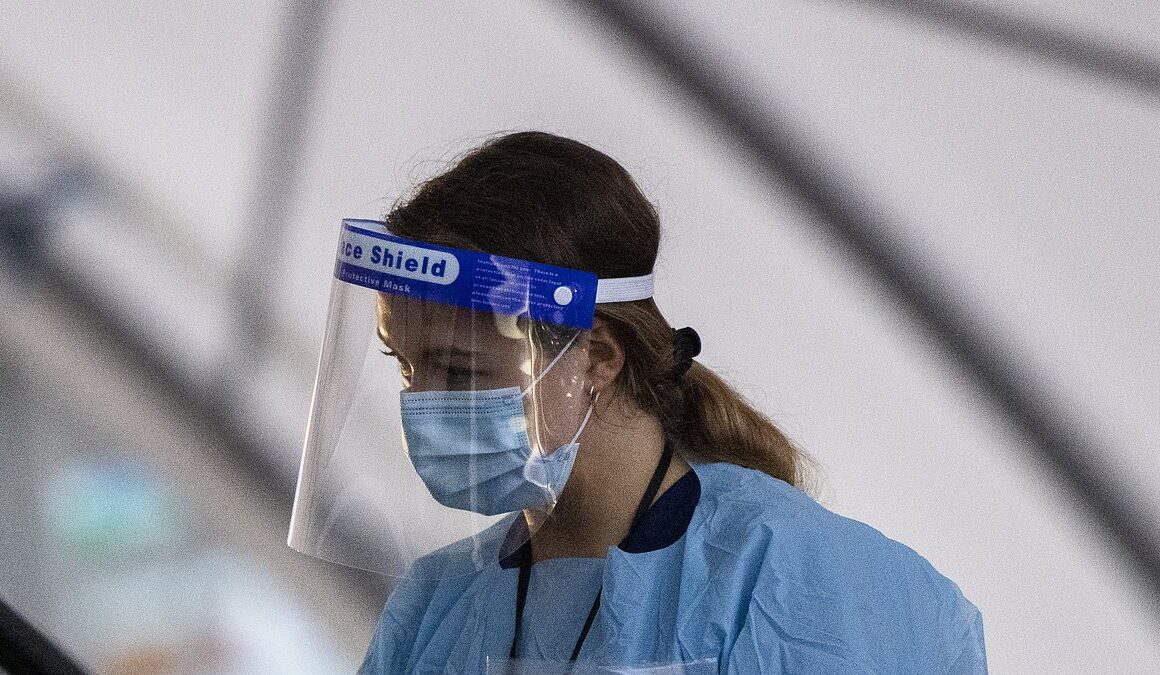Queensland is in the midst of a ‘flunami’ as influenza cases place a strain on the health system and authorities launch crisis talks over a hospital beds shortage.
The number of residents being hospitalised for the flu surpassed the number of patients being admitted with Covid for the first time this year.
Queensland Health figures show that 257 people were hospitalised for flu as of last Sunday, five more than those with Covid, and more than 80 per cent of hospital admissions for flu are patients who have not been vaccinated.
In the last week, 5,674 people were diagnosed with flu compared to 1,603 Covid cases, and there have been 37 deaths from flu already this winter.
Of the flu cases, 1,521 were in school children, 630 cases in preschool and 644 cases for those aged over 65.
Infectious diseases expert Dr Paul Griffin said the number of flu cases was straining the healthcare system and that there had been ‘crisis meetings about a lack of beds (as) our hospitals are congested’.
‘It is one of our lowest years of (flu) vaccine uptake, which, is a little disappointing,’ he told Daily Mail Australia.
‘We lobbied very hard to get the the vaccine funded ahead of time for everyone, and the government, to their credit, did do that.

Queensland is in the midst of a ‘flunami’ as influenza cases place a strain on the health system and authorities launch crisis talks over a hospital beds shortage (pictured, Surfers Paradise)
‘So in Queensland at the moment, it’s free for everyone who’s eligible. But despite that, we’ve actually seen fairly low uptake.
‘And in the context of the numbers (of people with flu) we’re seeing at the moment and the impact on the healthcare system, that is quite disappointing,’ he said.
Dr Griffin said the lower than expected vaccine numbers have been caused by a few different factors.
‘We’ve focused so much on Covid over the last few years – we’ve also asked a lot of people to to try and mitigate the the spread of Covid – and I think there’s an element of fatigue and frustration with a lot of those measures.’
He said that some people have lost sight of the significance of the flu.
‘We’ve been hearing so much about Covid numbers and the impact of Covid that people may have forgotten that the flu is around and is a very significant viral infection in its own right.
‘Misinformation about vaccination and its benefits and its safety has also transcended to other vaccines outside of Covid.
Dr Griffin said people are thinking: ‘What’s the point? I wouldn’t get that vaccine. It doesn’t stop you getting it anyway.’
But he said that is the wrong way to look at it.
‘We know that the vaccine is not perfect. It doesn’t necessarily absolutely stop you getting the flu,’ he said.
‘But what it does do is significantly alter your trajectory and reduce the probability of getting more severe disease and requiring hospitalisation, for example.

Dr Griffin said the lower than expected vaccine numbers have been caused by a few different factors (pictured, Aussie healthcare worker dressed in PPE)
‘We know the vaccine does do a great job of that.’
He added that ‘if our vaccine rates are low, then we have a population that’s more susceptible to progressing to those more significant manifestations, requiring hospitalisation and potentially even not surviving’.
All of the extra hospitalisations of people who did not get vaccinated is putting huge pressure on the health system.
‘The challenge is that our healthcare system essentially operates at capacity at baseline, so you add any additional challenges to that, and it does make it difficult,’ Dr Griffin said.
‘And at the moment, with high numbers of influenza hospitalisations (and) significant numbers of people in hospital with Covid and some other unique challenges, it has put a significant strain on our healthcare system …
‘There’s essentially no (hospital) beds anywhere in south-east Queensland.’
Epidemiologist Catherine Bennett also told Daily Mail Australia that ‘it is a concern that we have seen a drop in flu vaccines’.
She said part of the slow uptake of vaccines is because ‘There were warnings early on that it wasn’t quite as severe as people perhaps were expecting.
‘So if that’s usually a prompt for people to think about going and getting a vaccine back in April or May, maybe they’ve left it a bit late this year.
‘But we might be paying the price for that. It has played out as quite a nasty flu season across the country.’







